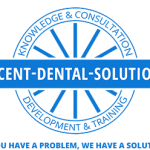Read the transcription…
Welcome. My name is Dr. Kevin Coughlin. I hope you enjoy the following podcast. In previous podcasts, I discussed some options and considerations for selling your dental practice. Unfortunately as we all know, we cannot take our dental practice with us. And eventually it will passed on to family members or sold to a corporate entity or ultimately and more commonly, sold to another practitioner, usually someone who’s been an associate in your dental office for the previous two to three years. There are some basic rules, what I call three simple rules when considering selling your practice.
Rule 1: Value does not equal price. Value is an estimate of the financial worth of a practice determined usually by formulas. Price, however, is determined by how determined the seller is to sell and the buyer wants to buy. At present time, most of the dentists that I know above the age of 60 cannot wait to sell their practice. Typically, the dental practice is considered one of the largest assets and is generally considered one of the best assets to help you retire into the near future.
Rule 2: Gross production is not what you want to purchase. That is a huge mistake. And many times I see this, over the last 35 years since 1983, of watching people deal with the selling of such an important asset. Gross production, remember, is not what you want to purchase. A much better determinant of value of a practice is really net income, as shown on your tax returns. So whether you’re considering selling your dental practice or considering making a purchase, it is critical that you look at net income from that individual’s tax returns on that particular practice. What a buyer should look to purchase is the dental practice’s ability to make a profit. This is perhaps the most critical point I can make in today’s podcast. The seller, if they understand this, would make this their number one goal and that is to make their practice as profitable as possible. The more profitable it is, the more valuable it will be to the would-be purchaser.
Rule 3: Never buy a practice potential. Only purchase what the present value is or historic value is. The future profits can be uncertain. So many times I see an individual say, “Dr. Coughlin, I’m thinking about buying a practice. It has a great potential.” You really want to make your purchase price based on today’s value, not what tomorrow’s value might bring or might not bring.
There are several methods of evaluating different assets. There is the fair market value, replacement value, book value and economic depreciation value. There are generally four asset classifications. There are considered tangible or physical assets such as consumables, supplies, furniture, fixtures and household physical assets. There are intangible assets which are generally considered goodwill, restrictive covenant and ongoing concern value. There are financial assets, which is the cash on hand, security deposits and accounts receivable and the real estate or land or building. These four asset classifications in general will make up the purchase price that you should consider for either selling your practice or buying your practice.
Remember that tangible assets are usually just a small part of the value of a practice. In most cases, a reputable equipment dealer or expert can put a price or fair market value on the equipment and supplies. In general, consider approximately a $5,000 expense per doctor. If the practice you’re considering has two, three or four doctors, just multiply the number of doctors times 5,000 and that will give you an average cost of supplies and equipment.
As far as methods of valuating assets, remember that most assets would depreciate over time. In general dental concepts, most of the cases the depreciation will occur in one to seven years. I cannot emphasize that even if you feel you’re not interested in selling your practice or you’re not considering buying a practice you should be prepared to sell it at any point in time. You should fully have an understanding of your four asset classifications; tangible, intangible, financial assets and real estate. You should have a pretty good idea of the ongoing concern or value of your practice. So in case of a mishap, a disability, some kind of illness, you are able to put your practice on the market and get the best price that you deserve and also a fair price for the potential buyer.
The stress and strain of owning a small business, operating a business is difficult at best. To get the best return for this investment, be prepared, be wise, whether you are the seller or the purchaser. Understand that the net income, the net profit is what will be used to determine the value of the practice. After you’ve agreed on a price, you will generally finance this practice anywhere between five and ten years. The cost each month of financing that practice should allow the net profits from that practice to not only pay that debt but offer you a profit besides. If this is unable to be obtained, then either you’re doing a poor job managing and marketing your practice, or you overpaid for your practice.
Thank you again for listening to this podcast and I look forward to talking to you in the near future. If you’d like additional information, you can reach me on my webpage www.ascent-dental-solutions.com. Thanks again and I hope you enjoyed today’s podcast.

